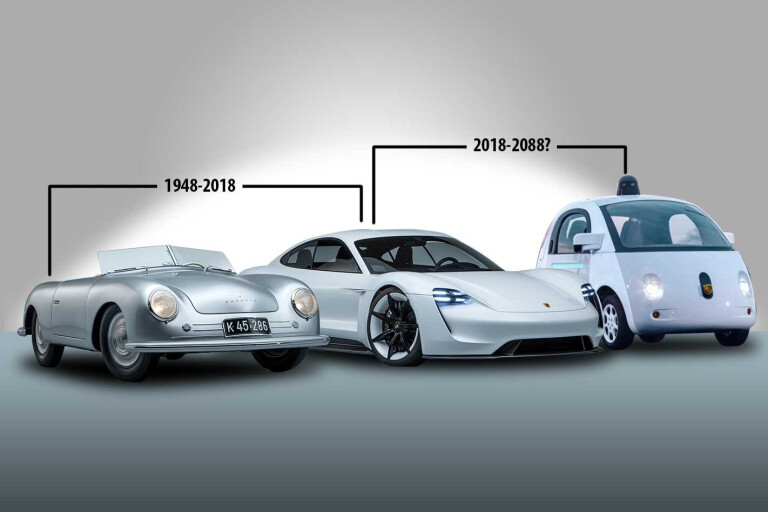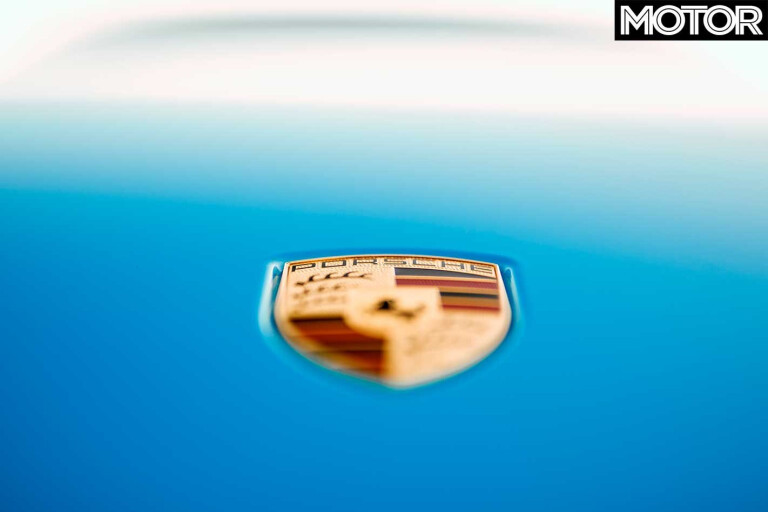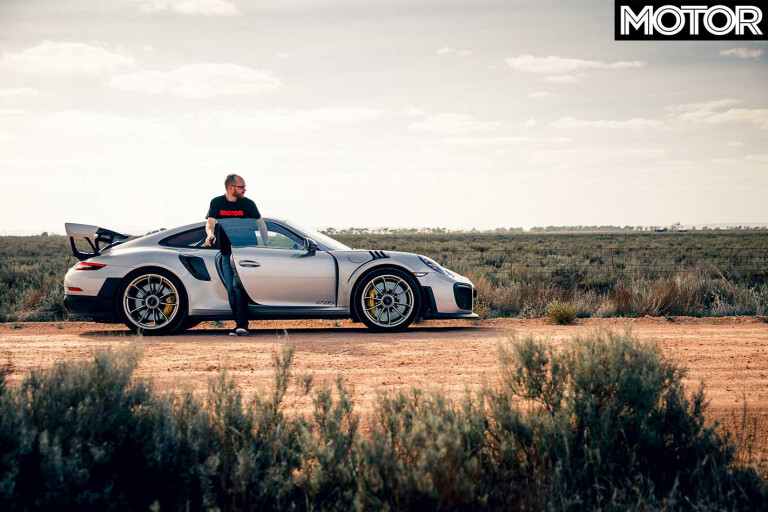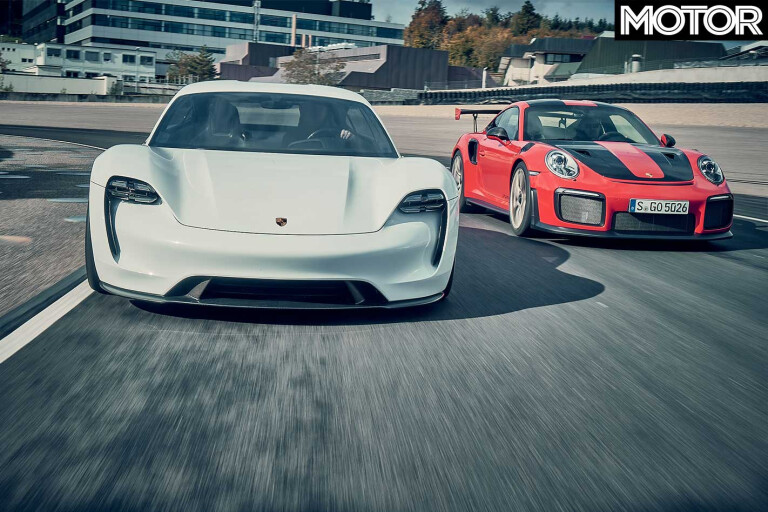
THE YEAR IS 2088. You and I are probably long dead, or just heads floating in a jar of life-sustaining liquid, mumbling something about natural aspiration. Sea levels have risen such that Dubbo now has quite a nice beach.
It’s the future, and unless teleportation has been miraculously invented, there’s now a mobility solution that was once known as the car. And if capitalism is still a thing, there will be a mobility solution with a Porsche badge on it.

As we celebrate the past 70 years of Porsche in MOTOR's August 2018 issue, it’s been fun to imagine how the performance car might change again over the next 70 years. As you start reading and looking at trends – including Porsche spending six billion euros (AUD$9.4b) on ‘electromobility’ over the next four years, and that’s just Porsche – you can’t help but wonder if we’ll still be admiring and celebrating the brilliant petrol-powered performance cars of today in 2088. (Certainly many investors in today’s age would agree.)
That includes celebrating the turbocharged ones; with emissions regulations being aggressively tightened, forget natural aspiration – grab hold of any petrol engine and hold it close, as it seems we can’t take their existence for granted.
With this in mind, I’m starting to embrace downsized turbocharged engines, rather than just grieving for the decline of atmo power. This is partly from having experienced a next-level turbocharged engine in the Porsche 911 GT2 RS (which you’ll read about the August issue), one that combines response and throttle precision with prodigious torque in a new and special way for a turbo engine. Hopefully this kind of turbo mastery trickles down to, say, hot hatches.

Of course, beyond this blossoming turbo age a short hybridised one likely awaits us, and it’s this one I feel more sceptical about. Is a Porsche 918 better off for its 314kg of batteries and electric motors? That said, I will keep an open mind when I drive the rumoured hybrid hot hatches like the next Ford Focus RS and Mercedes-AMG A45, which promise supercar acceleration on the smell of an oily rag.
It’ll be at the end of the hybrid period when we begin farewelling the internal combustion engine as the electric car takes a stab at world domination. Yes, one day your Renault Megane RS will probably be fully electric. It might also have a button that says “auto” and folds the steering wheel into the dash. Don’t act like you wouldn’t use it in the worst of traffic.
At this Jetsons-esque point of mobility solution evolution, a handful of internal combustion performance models may still be on sale – perhaps even naturally aspirated – but only in supercars priced not into the stratosphere, but low earth orbit.

It’s not all doom and gloom. I’m staying open to the idea of the electric performance car. It has a lot of potential, and not just by way of acceleration insanity, but also very tricky torque vectoring smarts and low centres of gravity, which could provide handling like you’ve never experienced before. The new Porsche Taycan (formerly Mission E) even has a sound generator that imitates a switchable exhaust.
Of course, it’s impossible to imagine how the world might look next year, let alone in 70. But so long as people still want to buy a sports car, emotion will be a major selling point, which will guide the creators of future electric performance models. Nobody will want an appliance, and in that, there’s an optimistic vision for the next 70 years, no matter the brand.

COMMENTS